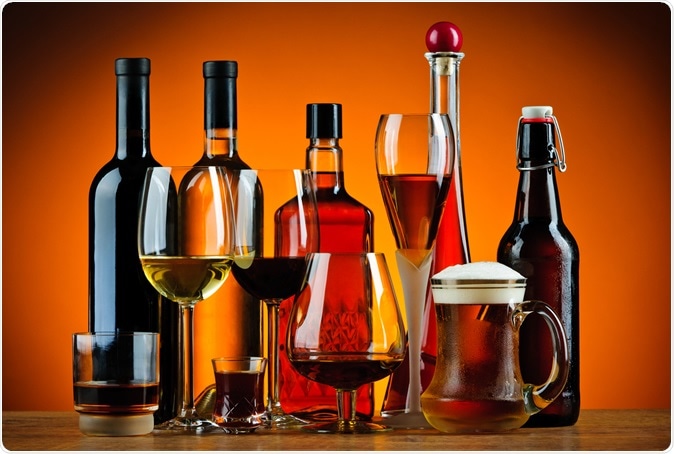Researchers from UK have studied different properties of various types of alcohol and found that while a glass of wine could help relax, some spirits can make one feel more confident and sexier. Theirs was the first study to look at emotional responses to different types of alcoholic beverages.
Their data comes from nearly 30,000 people who participated in the Global Drug Survey. The results of the study titled, “Do emotions related to alcohol consumption differ by alcohol type? An international cross-sectional survey of emotions associated with alcohol consumption and influence on drink choice in different settings” was published in the November issue of the British Medical Journal.

Image Credit: Christian Draghici / Shutterstock
The Global Drug Survey or the International cross-sectional opportunistic survey is an annual international poll that asks participants about their drugs and alcohol usage. The participants took an online anonymous questionnaire survey that was offered in 11 different languages. The advertisements for participating in the survey came up in the media including newspapers, magazines and social media. The survey was conducted between November 2015 and January 2016. The participants were aged between 18 and 34 years and they all recorded their consumption of spirits, beer, red and white wine over the last one year. A total of 29,836 participants took part in the survey from 21 different countries. The respondents were asked to report about how they felt after their drinks. These were positive and negative emotions listed in the study such as “energized, relaxed, sexy, confident, tired, aggressive, ill, restless and tearful.”
The survey results found that hard spirits such as vodka, gin and whiskey are associated with stronger feelings and more aggressive negative feelings. Results revealed that these drinks lead to aggression in 29.8 percent individuals, restlessness in 28 percent individuals and tearfulness in 22 percent individuals. Red wine caused aggressive feelings in only 7.1 percent individuals. However the positive emotions that these drinks brought about were also significant. They caused feelings of being energized in 58 percent, feeling confident in 59 percent and feeling sexier in 42 percent. Some other varieties of alcohol such as beer and red wine led to feeling relaxed in 50 and 53 percent individuals respectively. Red wine caused feelings of fatigue in 60 percent individuals and this was more common with red wine than with white wine.
The researchers write that the differences in the emotions reported after consumption of these beverages is mainly due to the differences in the alcohol content and ingredients in the drinks. Another reason why some specific emotions are attached to specific beverages is due to the cultural implications and media advertising around those drinks, they explain. Except for aggressive feelings, all of the other emotions reported came from women rather than from men. Further younger drinkers such as those between ages 18 and 24 who drank more frequently, also reported more emotions than more mature drinkers. Geographical areas and socioeconomic status also had an influence on reports about emotions felt after drinking.
The researchers concluded that most people may be choosing their drinks based on their emotional states as well as how they wish to feel after a drink rather than for pleasure alone. They wrote, “These findings suggest that individuals inadvertently select drinks which are known to elicit negative emotions because they crave the positive emotions that go with them and link with existing evidence that those dependent on alcohol drink alcohol as a coping mechanism rather than drinking for pleasure.”